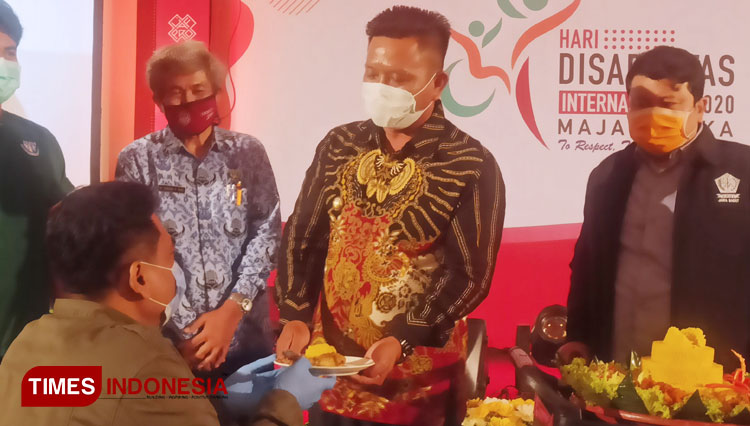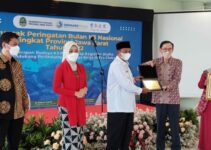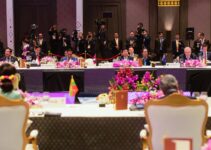Tantangan Politik Santun Dalam Pilkada Majalengka explores the intricate landscape of ethical political campaigning in the Majalengka region. This research delves into the historical context of political campaigns, analyzes the influence of major political parties, and examines the demographic and voting patterns of the electorate.
The World Cup Cricket tournament is approaching! Get the latest information about the venues and stadiums where the matches will be played.
The study further investigates the ethical dilemmas faced by candidates, the role of social media in campaign ethics, and the potential for misinformation in online campaigns.
If you’re a football fan, you’ll want to know the NFL schedule for October 2024 so you don’t miss any of the exciting games.
It examines the challenges of maintaining ethical conduct during campaigns, emphasizing the importance of civility and respect. The research explores strategies for promoting respectful political discourse, the role of fact-checking and media literacy, and the responsibility of civil society organizations in fostering ethical campaigns.
The study also analyzes the role of media outlets in shaping public opinion and holding candidates accountable.
Planning a trip to Italy in October? Check out the Columbus Day celebrations happening in Italy. It’s a great time to experience the local culture.
The Political Landscape of Majalengka
Majalengka, a regency in West Java, Indonesia, has a rich political history marked by shifting alliances and dynamic electoral landscapes. Understanding this historical context is crucial for comprehending the dynamics of contemporary political campaigns in the region.
Are there any new love interests in Jason Momoa’s life? Check out the latest rumors to see who he might be dating.
Historical Context of Political Campaigns
Historically, political campaigns in Majalengka have been characterized by a blend of traditional practices and modern campaigning strategies. During the early years of Indonesian independence, campaigns often relied on personal connections, community engagement, and grassroots mobilization. However, with the advent of political parties and the evolution of democratic processes, campaigns have become increasingly sophisticated, incorporating elements of media outreach, political advertising, and strategic alliances.
Major Political Parties and their Influence
Several major political parties have a significant presence in Majalengka, each with its own ideological stance and voter base. The Indonesian Democratic Party of Struggle (PDI-P), the Golkar Party, and the National Democratic Party (NasDem) are among the most prominent parties in the region.
Get ready for some chills and thrills! Find out when the Goosebumps movie is set to be released in October 2024.
These parties compete for electoral support by emphasizing their policy platforms, emphasizing their commitment to local development, and appealing to specific demographic groups.
Demographics and Voting Patterns
Majalengka’s electorate is diverse, with a significant rural population, a growing urban center, and a mix of ethnic and religious groups. Voting patterns in the region are influenced by factors such as economic conditions, social identities, and political affiliations. In recent elections, there has been a trend towards increased voter participation, indicating a growing awareness of the importance of democratic processes.
Looking for a tablet to use in 2024? Find out which 2020 Android tablets are still worth considering.
Challenges to Ethical Political Campaigns: Tantangan Politik Santun Dalam Pilkada Majalengka
Political campaigns, while essential for democratic processes, often face ethical challenges that can undermine the integrity of elections and erode public trust in the political system. The rise of social media has further complicated the ethical landscape of campaigning, presenting new opportunities for both positive and negative engagement.
Don’t forget to protect your eyes during the eclipse! Find out where to purchase solar eclipse glasses in Texas so you can safely enjoy the spectacle.
Ethical Dilemmas in Campaigns, Tantangan Politik Santun Dalam Pilkada Majalengka
- Misleading or Deceptive Campaign Promises:Candidates may make promises that are unrealistic or difficult to fulfill, leading to voter disappointment and disillusionment.
- Negative Campaigning:Engaging in personal attacks, spreading rumors, or using divisive rhetoric can damage the reputation of opponents and create a toxic political environment.
- Financial Irregularities:Campaign finance laws are often complex and subject to abuse, with candidates potentially engaging in illegal activities to secure funding.
- Conflicts of Interest:Candidates may have personal or professional interests that conflict with their public duties, leading to ethical concerns about potential bias or favoritism.
Social Media and Campaign Ethics
Social media platforms have become increasingly important for political campaigns, offering opportunities for direct communication with voters, targeted advertising, and rapid dissemination of information. However, social media also presents unique ethical challenges:
- Spread of Misinformation and Disinformation:Social media can be used to spread false or misleading information, which can influence voter opinions and undermine the integrity of elections.
- Cyberbullying and Online Harassment:Social media can be a breeding ground for cyberbullying and online harassment, which can target candidates, their families, or their supporters.
- Privacy Concerns:Social media campaigns may collect and use personal data of voters without their consent, raising concerns about privacy and data security.
Misinformation and Disinformation in Online Campaigns
The potential for misinformation and disinformation in online campaigns is a significant concern. Fake news, fabricated stories, and manipulated content can be easily spread through social media, creating confusion and distrust among voters. This can have a profound impact on election outcomes, as voters may make decisions based on inaccurate or misleading information.
If you’re a gamer, check out the best Android tablets for gaming in 2024. There are some great options available.
Strategies for Promoting Civility and Respect
Fostering ethical and respectful political discourse is essential for maintaining a healthy democracy. This requires a concerted effort from candidates, political parties, civil society organizations, and the media to promote civility, fact-checking, and responsible communication.
The full moon can have an interesting effect on animals. Read about the potential impact of the full moon in October on animal behavior.
Initiatives for Respectful Discourse
Several initiatives have been implemented to encourage respectful political discourse, including:
- Debates and Forums:Organizing structured debates and public forums where candidates can present their views and engage in respectful dialogue with each other and the public.
- Media Literacy Programs:Educating citizens about media literacy, critical thinking skills, and how to identify and evaluate information from various sources.
- Fact-Checking Initiatives:Establishing independent fact-checking organizations that verify the accuracy of claims made by candidates and political parties.
Fact-Checking and Media Literacy
Fact-checking and media literacy play crucial roles in promoting ethical campaigns. Fact-checking organizations can help to identify and debunk false or misleading information, while media literacy programs can empower citizens to critically evaluate the information they encounter.
The full moon in October 2024 might have a surprising effect on your creativity. Learn about the possible influence of the full moon on your artistic side.
Ethical Campaign Strategy
An ethical campaign strategy should emphasize the following principles:
- Transparency and Accountability:Candidates should be transparent about their funding sources, policy positions, and potential conflicts of interest.
- Respectful Communication:Candidates should engage in respectful dialogue with opponents, avoid personal attacks, and focus on policy issues.
- Fact-Based Arguments:Candidates should base their campaign messages on facts and evidence, avoiding unsubstantiated claims or emotional appeals.
- Community Engagement:Candidates should actively engage with the community, listening to concerns, and seeking input on policy issues.
The Role of Civil Society and Media
Civil society organizations and media outlets play vital roles in promoting ethical campaigns and holding candidates accountable. They can act as watchdogs, provide information to the public, and advocate for responsible political discourse.
Get to know the candidates vying for the position of Bupati in Majalengka. You can find out more about their profiles and their visions for the town’s future.
Responsibility of Civil Society
Civil society organizations can contribute to ethical campaigns by:
- Monitoring Election Processes:Observing elections to ensure that they are conducted fairly and transparently.
- Promoting Voter Education:Educating voters about their rights and responsibilities, and encouraging them to participate in the electoral process.
- Advocating for Ethical Campaign Practices:Promoting ethical campaign practices and holding candidates accountable for their actions.
Role of Media Outlets
Media outlets have a responsibility to:
- Provide Accurate and Unbiased Information:Reporting on political campaigns in a fair and impartial manner, avoiding bias or sensationalism.
- Hold Candidates Accountable:Scrutinizing candidates’ claims, policies, and actions, and holding them accountable for their behavior.
- Promote Public Discourse:Providing platforms for public debate and discussion of political issues.
Media Influence on Voters
| Type of Media | Potential Influence on Voters |
|---|---|
| Television | Wide reach, visual impact, potential for bias |
| Radio | Strong local reach, potential for emotional appeal |
| Newspapers | In-depth coverage, potential for credibility |
| Social Media | Rapid dissemination of information, potential for misinformation |
| Online News Websites | Accessibility, potential for bias and misinformation |
The Impact of Ethical Campaigns on the Community
Ethical political campaigns can have a positive impact on communities, fostering trust, civic engagement, and a healthier political environment.
The upcoming election in Majalengka could have a significant impact on the region’s future. Explore the opportunities and challenges that lie ahead for the town.
Trust and Civic Engagement
When campaigns are conducted ethically, they can build trust between candidates and voters. This trust can encourage greater civic engagement, as citizens feel more confident that their voices are being heard and that the political system is responsive to their needs.
Curious about Jason Momoa’s love life? You can find out more about his dating history to see who he’s been linked to in the past.
Healthier Political Environment
Respectful political discourse can contribute to a healthier political environment by reducing polarization, fostering dialogue, and promoting compromise. When candidates engage in constructive debate and focus on policy issues rather than personal attacks, it creates a more positive and productive political climate.
Case Study: The Impact of an Ethical Campaign
In a recent election, a candidate for local office ran a campaign that emphasized ethical communication, community engagement, and fact-based arguments. This candidate avoided personal attacks, focused on policy issues, and actively sought input from the community. The campaign was successful, and the candidate was elected to office.
The upcoming Majalengka election is sure to be interesting. Read about the factors that could influence the outcome and see how the candidates plan to address them.
The positive impact of this ethical campaign was evident in the increased trust and engagement among the community, as well as the improved political climate in the region.
Last Point
By promoting ethical campaigns, we can foster trust, civic engagement, and a healthier political environment in Majalengka. This research provides valuable insights into the challenges and opportunities of promoting ethical campaigns, highlighting the importance of promoting respectful political discourse, fact-checking, and media literacy.
The study underscores the crucial role of civil society and media in shaping ethical campaigns and ensuring that the political process remains fair and accountable.
Question Bank
What are the key challenges to ethical political campaigns in Majalengka?
The key challenges include maintaining civility and respect, countering misinformation and disinformation, and navigating the complexities of social media influence.
How can civil society organizations contribute to ethical campaigns?
Planning to witness the solar eclipse in Texas this October? Check out these weather predictions to see if you’ll have clear skies for the celestial event.
Civil society organizations can promote ethical campaigns by organizing voter education programs, conducting fact-checking initiatives, and advocating for transparency and accountability in the political process.
What is the role of media in shaping public opinion during campaigns?
Media outlets play a crucial role in shaping public opinion by providing information, framing narratives, and holding candidates accountable. Their coverage can significantly influence voters’ perceptions and choices.









